White rice is one of those basics that everyone should know how to make. It goes with just about everything—stir fry, curry, grilled chicken, you name it! This stovetop method is super simple and works every time.
You can also check out our guide to making brown rice if you want to go that route.

Why Our Recipe
- No-fail stovetop method for fluffy, perfectly cooked white rice every time.
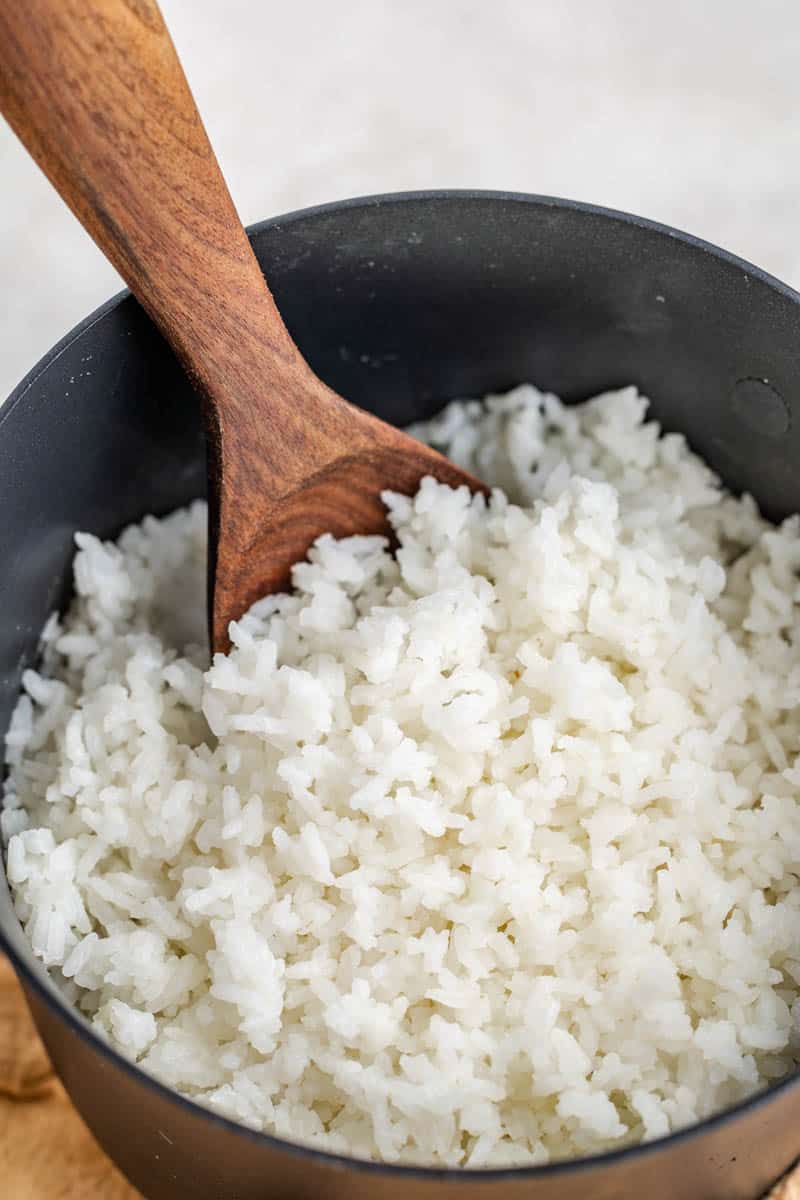
You don’t need a fancy appliance like a rice maker. Just a pot with a lid will do! Once you get the hang of it, you’ll skip the boxed instant stuff for good, and you’ll never think twice about whether you need to get a rice maker.
Ingredient Notes
- Long-Grain White Rice: Stick with long-grain for the fluffiest texture. Jasmine or basmati are great options.
- Water: Use a 2:1 ratio of water to rice for long-grain varieties.
- Salt: Adds flavor to otherwise plain rice.
- Olive Oil (Optional): A teaspoon helps prevent sticking and adds a little richness. You can also use butter instead.
White Rice Varieties
There are several types of white rice you can find in most grocery stores, and each one cooks a little differently. Here’s a quick breakdown to help you get the right results no matter which kind you’re using:
Long-Grain White Rice (Standard Long Grain, Jasmine, Basmati): This can be just generically labeled as “long-grain white rice,” but it’s better to purchase one that is labeled as jasmine or basmati since they tend to be higher quality. These varieties cook up fluffy with separated grains. Use 2 cups of water per 1 cup of rice. Cook time is about 15 minutes.
Medium-Grain White Rice (Calrose, Valencia, Bomba): Slightly shorter and plumper than long-grain, this type gets a little stickier when cooked. Use 1 1/2 to 1 3/4 cups of water per 1 cup of rice. Cook time is around 15 to 18 minutes.
Short-Grain White Rice (Sushi Rice, Glutinous Rice, Sweet Rice): The stickiest of the bunch, this rice is perfect for sushi, rice bowls, and desserts. Use 1 1/4 to 1 1/2 cups of water per 1 cup of rice. Cook time is about 18 to 20 minutes.
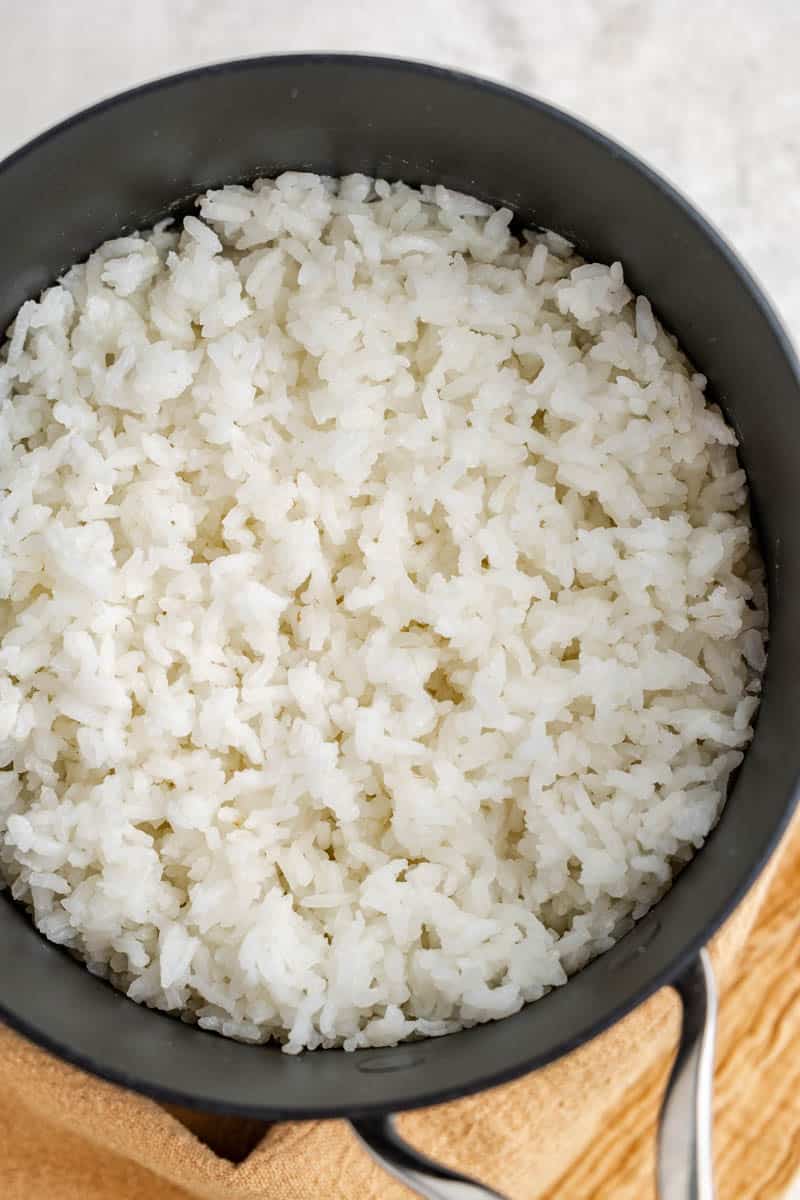
Rinsing and Soaking
Rinsing your rice is generally a good idea. It helps wash off the extra starch on the outside of the grains so your rice doesn’t end up too sticky or clumpy. Just toss it in a bowl or fine-mesh strainer, run cold water over it, and swish it around with your hand. Do that a few times until the water looks mostly clear. That’s all it takes!
Soaking rice is totally optional, but it can help too, especially for basmati or short-grain rice. Soaking for 15 to 30 minutes before cooking helps the grains cook more evenly and gives you a softer texture. It’s a nice step if you’ve got the extra time.
That said, some people skip rinsing altogether, and that’s okay too. If you’re in a rush, or if you actually want your rice to be a little stickier (like for a rice bowl), you can skip it. Also, some packaged rice in the U.S. is enriched with nutrients, and rinsing can wash some of that away. So it really depends on what you’re making and what your preferences are.
Storage & Reheating Instructions
Storing Leftovers: Let your rice cool completely, then transfer it to an airtight container. Store in the refrigerator for up to 4 to 5 days.
Leftover Tip: Day-old rice is perfect for making fried rice. The grains are a little drier, which helps them crisp up better in a hot pan without turning mushy.
Freezing: Cooked rice freezes really well! Spread it out on a baking sheet to cool quickly, then portion it into freezer-safe bags or containers. It’ll keep in the freezer for up to 3 months. When you’re ready to use it, just thaw it in the fridge or microwave straight from frozen.
Reheating: The microwave is the easiest way. Just add 1/2 to 1 teaspoon of water to your rice, cover it with a damp paper towel, and heat in 30-second bursts, fluffing in between, until warmed through.
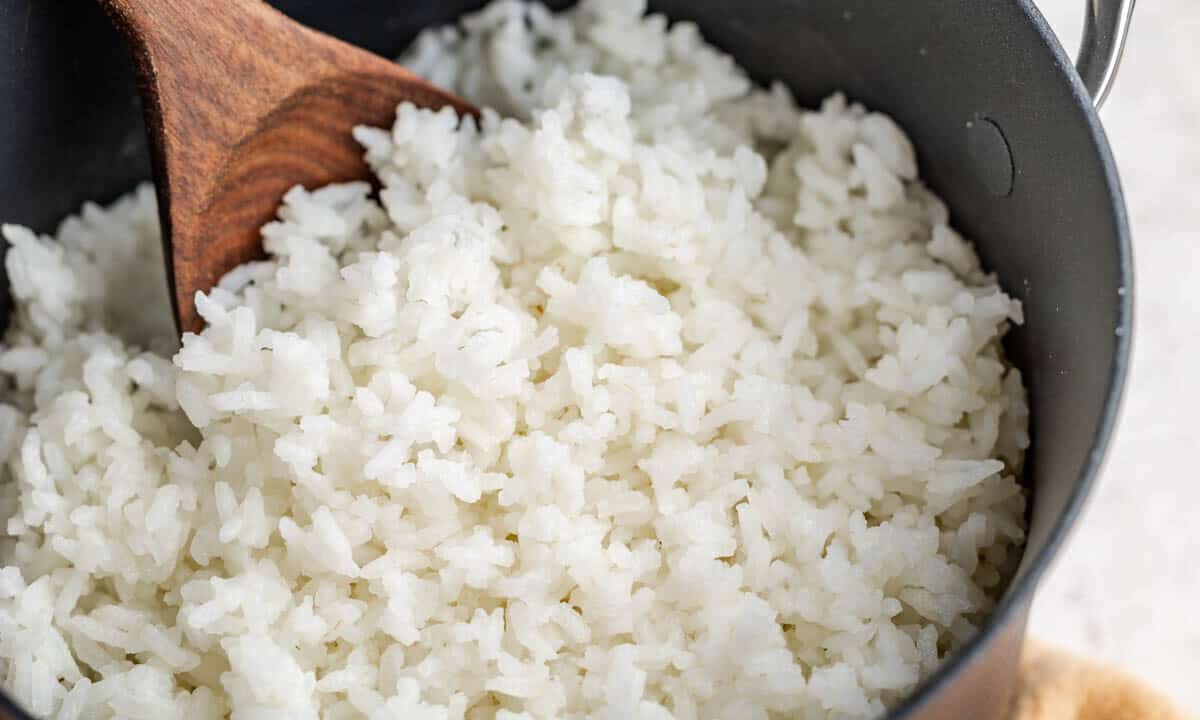
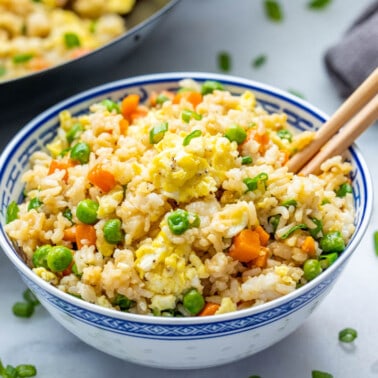
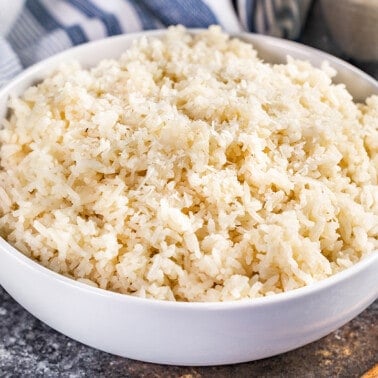
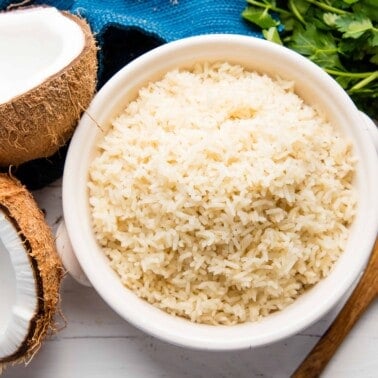
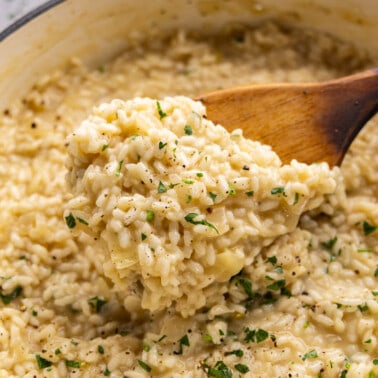
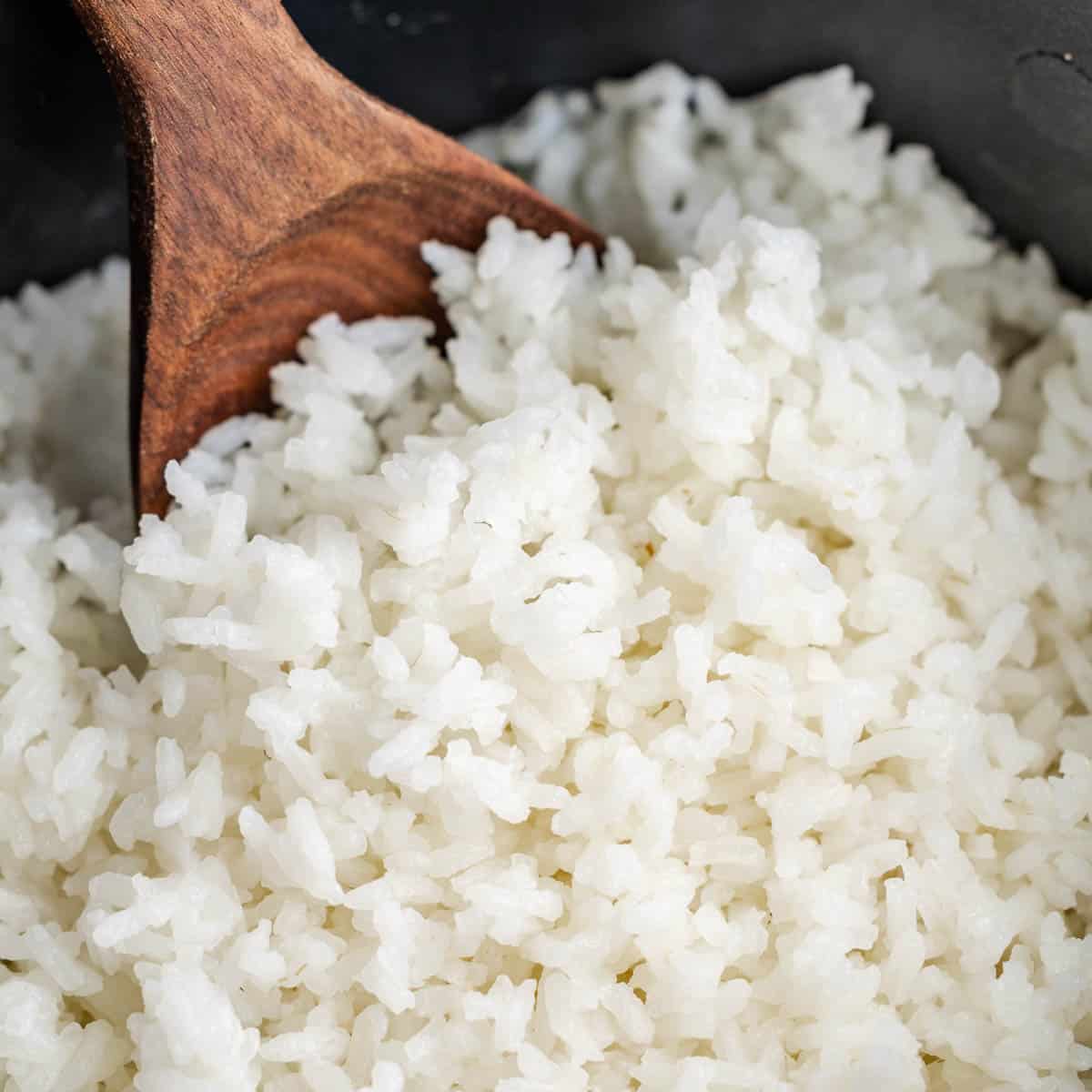
Nice tips